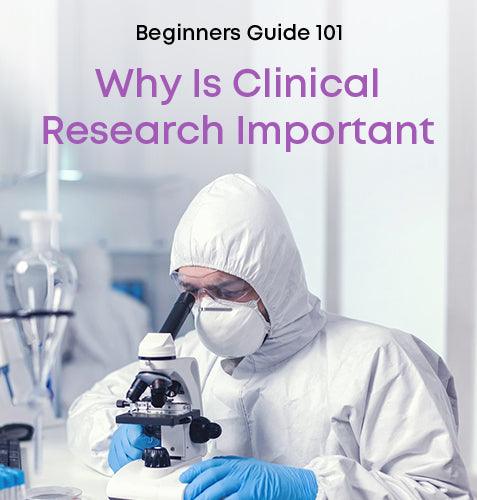Today, a majority of people are not aware of the importance of clinical research and that is quite understandable. Unless you are related to the field of medicine or know someone who has been a part of medical research, there is a probability that you may not be very well aware of the subject.
If you are a medical professional, it is important to know about clinical research as it gives you great insights that will help you make wiser medical decisions.
So, What Is Clinical Research?
Clinical research is primarily the study of ailments in individuals. When you conduct this sort of research, those who are in the health care sector can develop a sound understanding of different the illness.
When a researcher conducts a research, a thorough examination of data, tissues, people or samples. With this approach, new methodologies can be derived for detection, diagnosis, treatment and prevention.
The ulterior motif is to enhance medical knowledge and improve the quality of care.
Considering the importance of research, it is imminent for scientist and doctors to opt for a systematic approach before data collection. There are certain protocols that need to be followed such as taking regulatory approvals and other steps for ethical and legal compliance.
Types Of Clinical Research
As per the US Food and Drug Administration, there are a variety of clinical research that can be conducted. Depending on the area of research, the type can be determined.
Few examples of clinical research are:
Treatment Research
This form of research is pertaining to investigating treatment options for various diseases. When a researcher performs this form of research, they take the new methodologies of interventions such as devices, therapies and medications.
Prevention Research
Prevention research focuses upon ways to find ways to prevent disease from reoccurring. In such scenarios, the researcher identifies the various risk factors
With prevention research, the goal is to find better ways to prevent conditions from either reoccurring or developing in the first place. In such cases, research teams identify risk factors and derives ways to ensure prevention. These methodologies include vaccines, medications or lifestyle alterations.
Diagnosis Based Research
It is the practice of coming up with pragmatic ways to identify the various disorders. When such research of performed, they come up with prediction rules that can be later used by doctors to diagnose ailments.
Screening Research
With screening research, investigators can easily detect ailments with accuracy. Researchers that conduct this form of research makes use of new methods that help detect diseases in patients.
Research To Improve Quality Of Life
With this form research, one can explore how to improve the quality and comfort of patients suffering from terminal illnesses. This way, doctors are able to manage their condition better.
Genetic Based Research
Genetic research helps in improving disease prediction. It takes genes and diseases and their correlation into consideration. With such researches, medical experts can determine how the genetic makeup may increase the likelihood of developing a certain disorder.
Epidemiological Studies
With epidemiolocal research, researchers can identify the cause, pattern and then control the ailment in a group of people. With this type of research, the researcher will take the sample population into consideration, gauge the risk factors and derive the preventive measures associated with the disease.
How Does Clinical Research Help?
As discussed earlier, clinical research enables all researchers, be it doctors or scientists to understand the pattern and nature of diseases. When they have this knowledge, they can derive better methods of diagnosis, detection, prevention, and treatment plans. Through this, the patient and society benefit at large.
In a nutshell, clinical research tends to improve the quality of life. It transforms the way the medical fraternity approaches any disease ensuring that all patients possibly get the best form of care.
Some of the laurels off clinical research include: vaccines, treatment methodologies for cardiac ailments, diabetes, cancer, ulcers, etc. today, medical experts use MRIs, X-rays, CT scan, etc. for diagnosis which is again a fruit of clinical research. Lastly, the medical procedures and protocols also improve.
Without clinical research, there will not be such tools affecting the overall quality of care. Moreover, it will also hinder medical science from progressing and advancing making the masses vulnerable to potential health issues.

